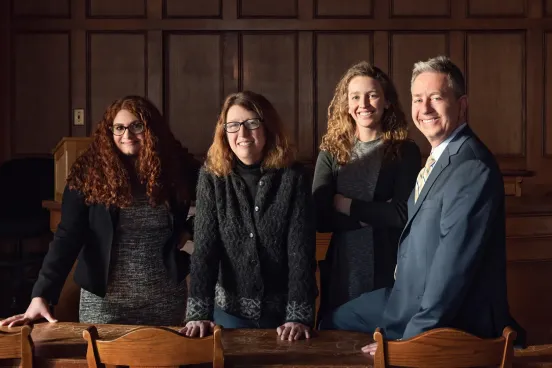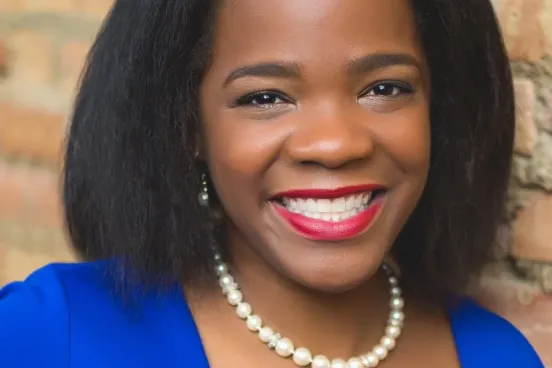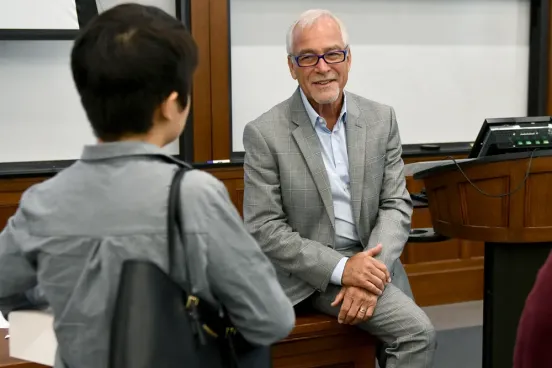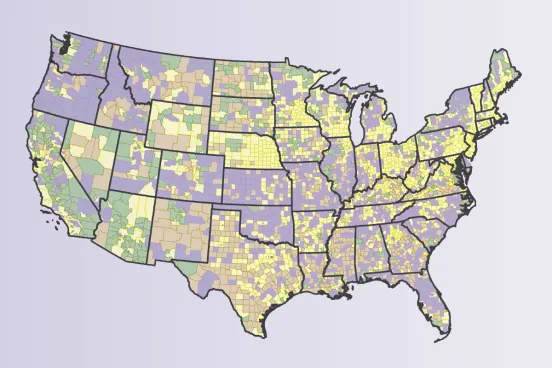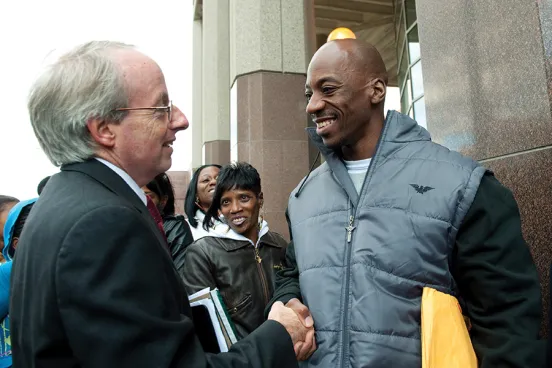
Melissa Peña
A week before the fall 2018 semester started, Melissa Peña was pulling 13-hour shifts at the South Texas Family Residential Center in Dilley, where the largest immigrant detention center in the United States is located. Peña was helping Central American women seeking asylum in the United States prepare for their credible fear interviews.
Peña, a 3L, went to Dilley—about an hour’s drive from San Antonio—as a volunteer with the CARA Family Detention Pro Bono Project, a volunteer-based organization that provides pro bono legal services to the women and children held at the detention center. The privately owned facility opened in 2014 during the Obama administration and has the capacity to hold 2,400 individuals.
Peña, who is fluent in Spanish, expected to serve as an interpreter for Ann Arbor attorney Barbara Kramer, who had travelled to Dilley as a pro bono volunteer. Instead, Kramer used telephonic interpreters in her work, while Peña was asked to help the detainees prepare for their credible fear interviews with an asylum officer—the first step in the asylum process for those claiming asylum in the United States—by interviewing them about their reasons for fleeing their home country.
Peña interviewed numerous women—most of whom had small children and were as young as 18—during the course of a day that often began at 7:30 in the morning and ended late in the evening. “The number of women I spoke to depended on how long it took for them to share their stories,” Peña says. “They told us it would take an hour to do the interview, but sometimes it took three hours, depending on the strength of the case and the willingness of the person to share. Some women were more resistant to offer details because of the trauma they had endured or because they were afraid their home country would come after them.”
The women fled Honduras, Guatemala, and El Salvador—a region known as the Northern Triangle. Gang violence there has skyrocketed in recent years, forcing thousands of Hondurans, Guatemalans, and Salvadorans to seek asylum in the United States. “One woman told me there was an order from one of the gangs that anyone with blond hair had to dye it, or else they would get their hair scalped,” says Peña, who spent a week in Dilley. “The stories were horrific, and by Thursday they were really getting to me. I had to step outside and take a moment for myself.”
Oftentimes, Peña says, it felt like she shouldered the weight of the world, given the expectations that were placed on her. “At this particular detention center, they mostly get positive findings for the asylum seekers. Rarely do they get a negative finding. It’s a huge load on your shoulders to get every detail possible to make sure the women have the best claim put forward to fit the asylum law, because it’s so strict.”
Despite the intensity of the work, Peña is grateful for the opportunity to have helped the women and see firsthand how U.S. immigration policies affected them. And thanks to this experience and her previous summer internship at the Florence Immigrant and Refugee Rights Project in Tucson, Peña is committed more than ever to pursuing mmigration law as a career. “You have to experience it yourself to know the gravity of the immigration situation,” she says. “I don’t think a day has passed that I haven’t thought about those women. It was a life-changing experience.”
—LA
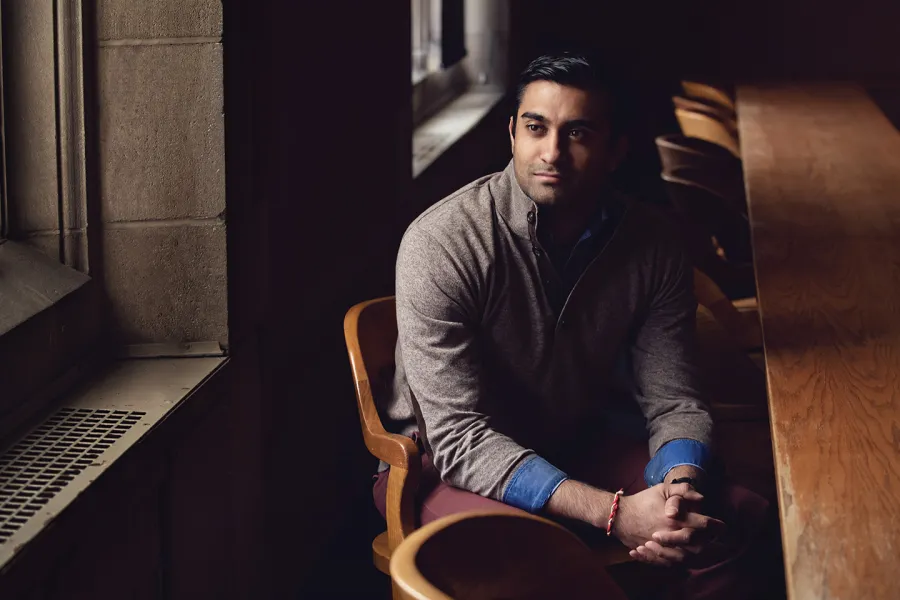
Akash Patel
You quickly realize how high the stakes are when your client—a refugee—describes the terrifying life she left behind in Central America to claim asylum in the United States, says 3L Akash Patel. Through the Legal Alternative Winter Breaks (LAWBreaks) program, he and 10 other Michigan Law students spent last year’s spring break collaborating with the Dilley Pro Bono Project to provide free legal aid to immigrant families detained at the South Texas Family Residential Center in Dilley.
It was a profound experience for Patel, whose parents travelled from India to London and finally to the United States in the early 1990s. “Even though I lived undocumented for 16 years,” he says, “it pales in comparison to what these families go through to have the same chance that I did.”
That’s why, as a 2018 summer associate in the Washington, D.C., office of Hogan Lovells LLP, Patel approached the firm’s pro bono partner with an idea. “[President] Trump’s family separation policy had just exploded in the news,” he says. “The firm was buzzing with talk about the issue and acted without hesitation on my proposal to send a team to Dilley to provide relief for the families detained there.” Patel arrived several weeks later accompanied by 30 Hogan Lovells attorneys and staff from around the globe.
However, when Patel entered the South Texas Family Residential Center, it was a starkly different scene than what he had witnessed five months prior. “Hundreds of women and children were completely terrified, sobbing hysterically,” says Patel, recalling the turmoil that arose when—soon after their arrival—former Attorney General Jeff Sessions eliminated a category qualifying victims of gang and domestic violence for asylum. “Knowing the law was in flux, we were all in fear and struggled to help the families prepare for interviews that decided whether they were deported or had a chance of staying.”
Three days into Hogan Lovells’s six-day operation, the Trump administration ended its family separation policy, which added to the confusion. “There was no organization, communication, or resources—it was clear that the government wasn’t prepared to reunite families,” says Patel. He and his colleagues worked 13-hour days, trying to reunite women and children with relatives scattered in detention centers across the country before the team had to return to their offices. “For the rest of my life, I’ll remember all of their names and faces. There are no words to capture the depth of suffering and injustice they have endured and continue to endure,” says Patel.
After Patel returned to Ann Arbor last fall for his final year of law school, Hogan Lovells filed a class-action lawsuit on behalf of the migrant children forcibly separated from their parents after entering the United States. Last September, Hogan Lovells announced negotiations with the U.S. government for a settlement that would ensure hundreds of children and their parents receive an opportunity to seek asylum after reunification. “It’s so meaningful that not only did LAWBreaks open the door for us to do this critical work, but also that Hogan Lovells helped multiply our efforts with their tremendous support,” says Patel. “It is one of my most formative law school experiences, and one I only had because I came to Michigan Law.”
—JP


